Columns
Jack Keonyemere Lincoln ( LKJ) Ogunewe guns for governor
Published
2 years agoon
By
Ekwutos Blog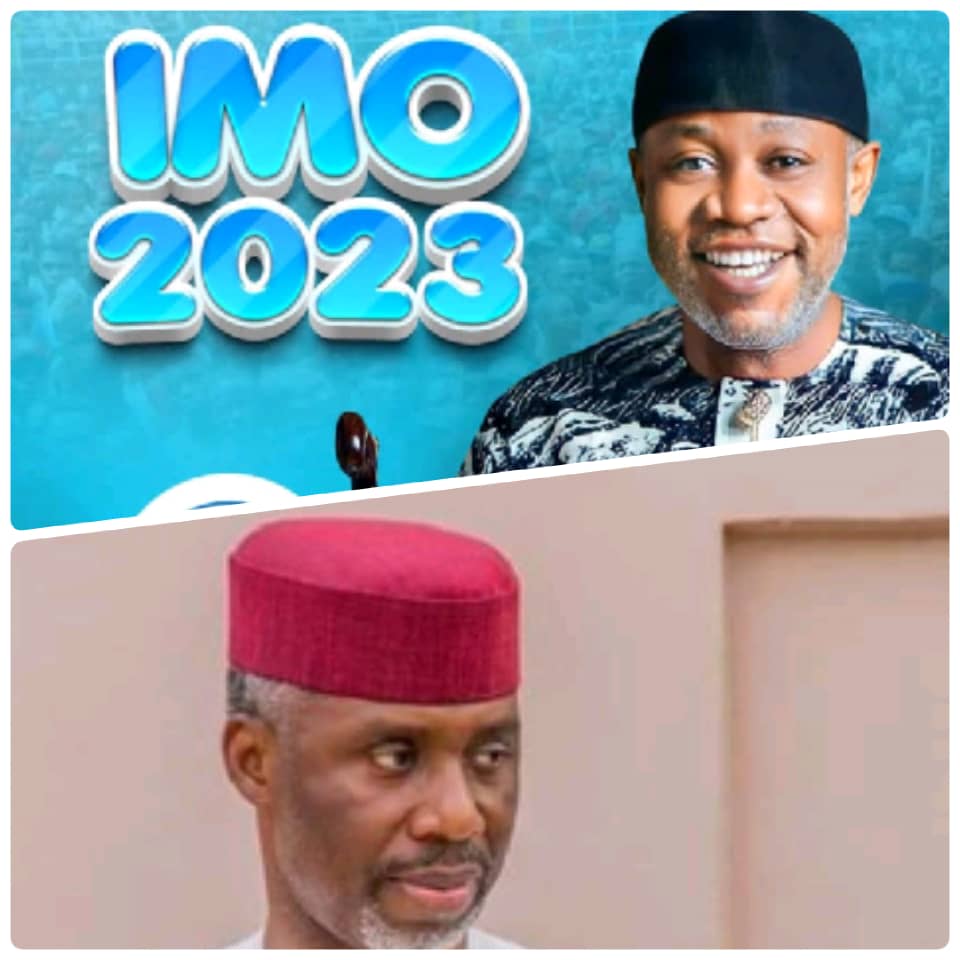
By Emeka Obasi
He is no Jack of all trade, this one knows his way round leadership and from the military, Jack Keonyemere Lincoln ( LKJ) Ogunewe is gradually settling into political engineering. For a man who enlisted as a teenager, his civility is infectious.

Jack Keonyemere Lincoln ( LKJ) Ogunewe
Gen. Ogunewe has eyes on the Imo State Government House which I will never refer to as Douglas House because it is a huge shame that a man who dealt with Mbaise in the colonial period is celebrated in the Imo State capital.
Ogunewe is an Mbaise man from Ezinihite. I do not not know how he feels about the colonial Douglas. For now, his attention is on the prime job in Imo State. Gubernatorial elections come up in November. Imo means so much to Ndigbo.
I was in touch with Ogunewe last week and he sounded modest. In fact, I joked that I did not mind his rank as a retired Two – Star general while handing out an order to him. He said he was standing attention already. That is humility.
The veteran may not be like other politicians who brook no opposition. “ My greatest fans are critics because I know that it is not everyone that criticises you that that should be seen as an enemy. And not all that praise you can be safely regarded as friends,” he said.
The general is well traveled and sound. With a Bachelors degree in Electrical Engineering from the University of Nigeria Nsukka and Masters in Defence and Strategic Studies from the National Defence University, Islamabad, Pakistan, he also trained in Ghana, Israel, the United States and Thailand.
He passed out as a member of Regular Course 29, of the Nigerian Defence Academy ( NDA) Kaduna. That should be same set as former Army Chief, Tukur Buratai. Ogunewe missed the position of Chief of Army Staff by a whisker but as Chief of Policy and Plans, was next in command.
Ogunewe comes with a touch of diplomacy too. As Defence Adviser, Nigerian Mission to the United Nations in New York, he scored a first. His colleagues at the world body elected him as Dean, Military and Police Advisers Community. No African got to that level before him.
It is also remarkable that as a soldier he won elections, far away from home. Obviously, the political engineering will not start with this Labour Party attraction. That experience of winning election in the home of democracy without throwing money about means so much.
Ogunewe comes from a military family. His father, Col. David Sunday Ogunewe, the 34th officer commissioned by the Nigeria Army is best remembered as the man who spared Enugu bloodletting during the Counter Coup of July 29, 1966.
Col. Ogunewe was barely six months old as commanding officer, First Battalion, Enugu when the coup that consumed Gen. Johnson Aguiyi – Ironsi and Col. Adekunle Fajuyi happened. He succeeded Col. David Ejoor who was appointed Military Governor of Mid-West Region.
Northern elements, led by subalterns like Shehu Musa Yar’adua, Muhammadu Jega and Yohanna Kure were baying for blood but Ogunewe applied diplomacy to control the situation. The officers listened to him because of his disposition.
Governor Emeka Ojukwu was in Enugu and the Ogunewe treatment saved him from danger. Perhaps, that was why the former chose the latter as Principal Staff Officer ( PSO ) when he became Head of State of Biafra. Under Ojukwu, the PSO ranked as high as a Service Chief.
At the end of the war, Ogunewe braved the consequences and stayed behind while his boss flew to Cote D’Ivoire ‘in search of peace.’ He was one of those that received Col. Olusegun Obasanjo, GOC of Nigeria Army 3rd Marine Commando division, his erstwhile subordinate at Third Battalion, Kaduna, in Amichi.
Ogunewe was part of the Biafran delegation that flew to Lagos to end the war formally. Led by Gen. Philip Effiong, other members were Brigadier Patrick Amadi, Col. Patrick Anwunah, Sir Louis Mbanefo, Prof. Eni Njoku, Mathew Mbu and Chief Patrick Okeke.
Col. Ogunewe’s leadership qualities were duly recognised by Gowon and without being detained like some of his colleagues, he was asked to resume at the Nigeria Army without any loss of rank. His rank before the war was Lt. Col.
His son, Jack also joined the Army and rose to the rank of Major General. Those leadership qualities seem hereditary. The junior Ogunewe wants to make things happen in Imo. He has no godfather bankrolling his ambition and believes Ndi Imo are not willing to be bought over like market commodity.
The Labour Party is packed full, with candidates who cannot be considered as new comers. There is Martin Agbaso, who has moved from to party and gave his younger brother, Jude, to Rochas Okorocha as deputy governor. His elder sister was married to Gen. Buba Marwa.
Athan Achonu is a known strong man who bulldozed his way to the senate. A battle tested politician, he is also loaded and well connected to the North. Charles Agomuo retired from the Police as Assistant Inspector General. Kelechi Nwagwu was Speaker, Imo House of Assembly. Joseph Ukegbu was the Labour Party candidate in 2019.
Ogunewe is battle tested and battle ready. Armed with integrity and devotion to service, his military background is an advantage. In a state troubled by insecurity, the general is not drawing a pistol yet. He sees Imo as a land of great people that will surely bounce back under a dynamic Labour Party.
You may like
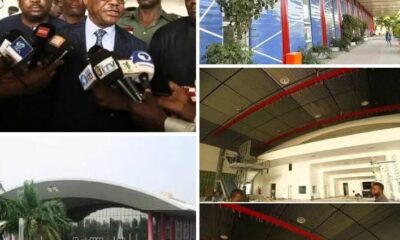

Abuja International Conference Center Built In 1991 For N240m Is Being Renovated In 2025 For N39b BY Wike…
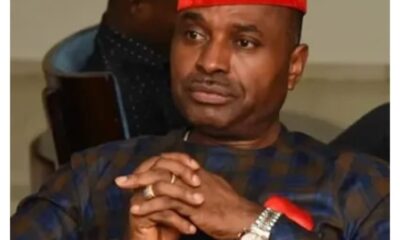

2027: I’ll support anyone willing to leave office after four years – Kenneth Okonkwo
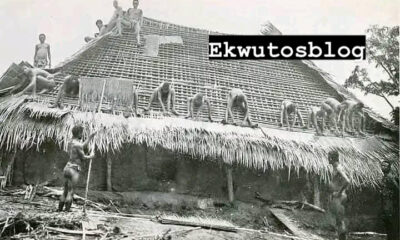

Igwebụike in action! Pre-colonial Igbo society’s remarkable approach to community development, where every man was a landlord.
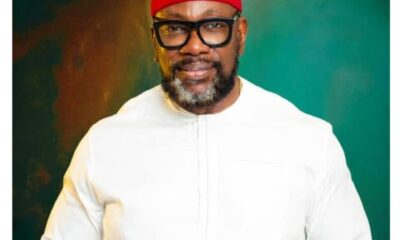

Anambra South needs increased funding for infrastructure, quality education, healthcare – Amamgbo
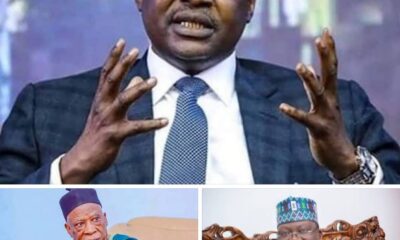

BREAKING NEWS: Senators and former ministers of Buhari are preparing to move from APC to SDP.
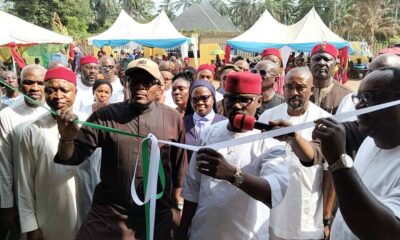

Hon. Deacon Chike Okafor Commissions Health Centre in Ihitte-Uboma
Columns
Abuja International Conference Center Built In 1991 For N240m Is Being Renovated In 2025 For N39b BY Wike…
Published
60 minutes agoon
March 17, 2025By
Ekwutos Blog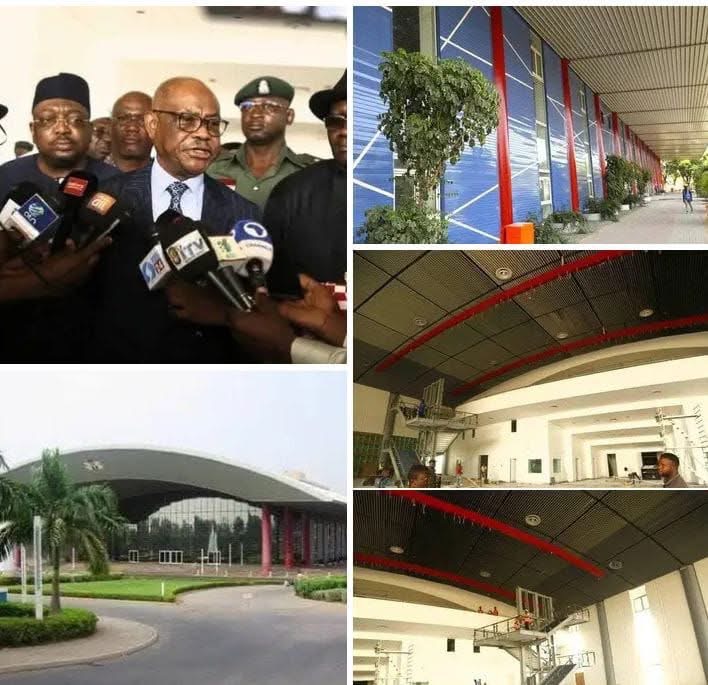
The Abuja International Conference Centre (AICC) was built at an estimated cost of $29.6 million (about ₦240 million at the exchange rate of the time). It was completed in 1991 and has since been one of Nigeria’s premier venues for national and international events.
In 2025 The Minister of the Federal Capital Territory (FCT), Mr Nyesom Ezenwo Wike – CON, GSSRS , says the FCT Administration is expending N39 billion on the rehabilitation of the Abuja International Conference Centre.
Columns
Igwebụike in action! Pre-colonial Igbo society’s remarkable approach to community development, where every man was a landlord.
Published
4 hours agoon
March 16, 2025By
Ekwutos Blog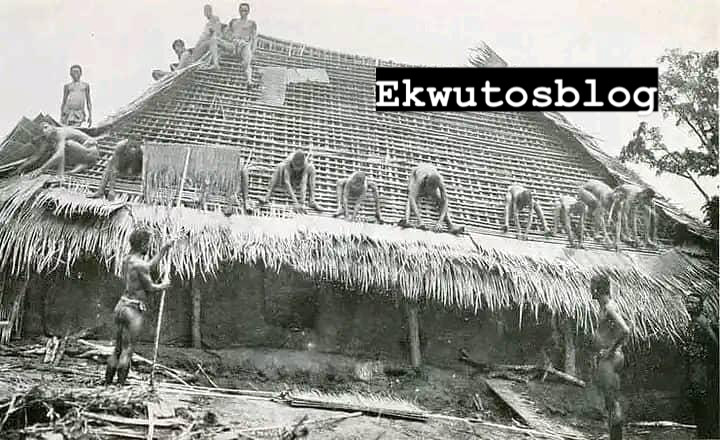
This a picture depicting the Igbo people building house collectively for one another, free. In the olden days, life was so easy. The Igbo lived a communal life. When a man get to the age of ịpụ obi, his age grade would contribute in building house for him free. He will also do so to others.
No stress. No competition. Everyone moves together. Age grade was established by our ancestors to support one another. Growth was collectively massive. The concept of Igwebụike was loud. Onye aghana nwanne ya.
No one got paid for doing so. It’s free of charge. Community development was an important role and duty of pre-colonial Igbo society.
Everyone joyfully helped one another to stand as a man and have a shelter over his head. Every Igbo man was a landlord. No tenant. Once you are of age, either you have your home in your father’s house or ị pụọ obi. Your age grade will build you a house.
Columns
Nigeria Customs Set to Introduce Automated Transire Process, Sensitises Officers, Stakeholders
Published
1 day agoon
March 15, 2025By
Ekwutos Blog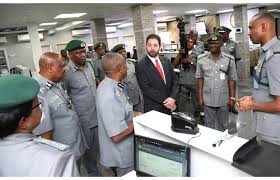
The Nigeria Customs Service (NCS) is set to introduce an Automated Transire Process (ATP), a system designed to enhance trade efficiency, minimise delays, and curb cargo diversion.
Speaking at a sensitisation session at Apapa Area Command on Thursday, 10 March 2025, the Comptroller-General of Customs (CGC), Adewale Adeniyi, represented by the Zonal Coordinator, Zone A, Assistant Comptroller-General of Customs (ACG) Charles Orbih, described the initiative as a transformative development for the NCS.
He stated, “This is not merely a technological upgrade; it represents a strategic shift aimed at positioning the Nigeria Customs Service and the nation at the forefront of global trade efficiency, security, and transparency.”
He further explained that the Automated Transire Process, developed in-house by NCS ICT officers, is expected to significantly reduce customs clearance times, enhance tracking capabilities, and improve accountability.
ACG Orbih emphasised that real-time tracking and data transparency would mitigate the risks associated with cargo diversion while boosting stakeholders’ confidence in the system.
He added that faster access to goods at ports and terminals would benefit importers, exporters, and all players in the logistics chain.
Reflecting on the initiative’s origins, the Zonal Coordinator recalled that the automation project stemmed from a directive issued during last year’s CGC conference, where the ICT/Modernisation Department was tasked with automating the transfer process by the first quarter of 2025. This milestone has now been achieved.
The Deputy Comptroller-General in charge of ICT/Modernisation, DCG Kikelomo Adeola, represented by ACG Zanna Gaji, further outlined the project’s benefits.
He remarked, “This system will enhance efficiency and transparency, improve revenue collection, and minimise opportunities for corruption by ensuring a fair and predictable process.”
He noted that the automation would strengthen Nigeria’s position in global trade and promote international best practices.
ACG Gaji stressed that the rollout would be gradual, beginning with a user acceptance test and a pilot phase at one of the bonded terminals.
“We cannot introduce the system immediately. It is essential to engage stakeholders, conduct hands-on testing, and refine the system based on feedback,” he stated.
During the feedback session, Area Controllers within the Apapa environs underscored the importance of incorporating all relevant units and addressing the absence of a watchlist feature.
Stakeholders also sought clarification on the official launch date and requested adjustments to align the system more effectively with operational requirements.
In response, Assistant Comptroller of Customs Usman Abba, the team leader of the ATP development project, assured attendees that the system would be fully integrated with all relevant units, departments, and commands before full implementation.

Abuja International Conference Center Built In 1991 For N240m Is Being Renovated In 2025 For N39b BY Wike…

2027: I’ll support anyone willing to leave office after four years – Kenneth Okonkwo

Igwebụike in action! Pre-colonial Igbo society’s remarkable approach to community development, where every man was a landlord.
Trending

 Trending5 months ago
Trending5 months agoNYA demands release of ‘abducted’ Imo chairman, preaches good governance
- Politics1 year ago
Nigerian Senate passes Bill seeking the establishment of the South East Development Commission.
- Business5 months ago
US court acquits Air Peace boss, slams Mayfield $4000 fine

 Politics5 months ago
Politics5 months agoMexico’s new president causes concern just weeks before the US elections
- Entertainment5 months ago
Bobrisky transferred from Immigration to FCID, spends night behind bars
- Entertainment5 months ago
Bobrisky falls ill in police custody, rushed to hospital

 Politics5 months ago
Politics5 months agoRussia bans imports of agro-products from Kazakhstan after refusal to join BRICS

 Politics5 months ago
Politics5 months agoPutin invites 20 world leaders

